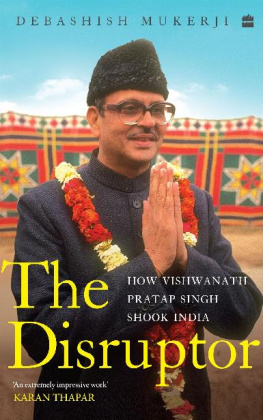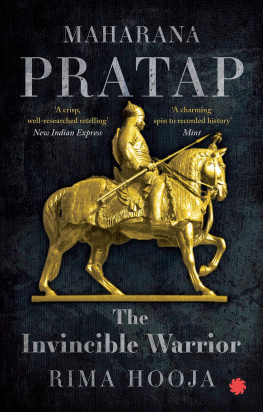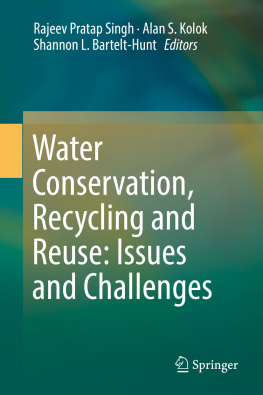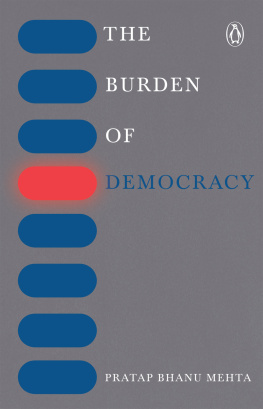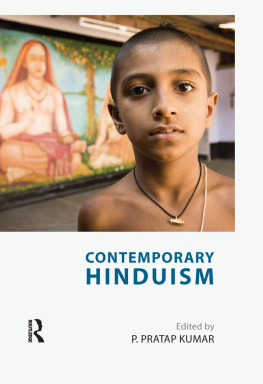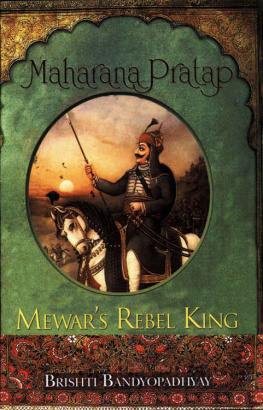GANDHIAN
MANAGEMENT
The Paragon of Higher Order Management
RAM PRATAP
JAICO PUBLISHING HOUSE
Ahmedabad Bangalore Bhopal Chennai
Delhi Hyderabad Kolkata Lucknow Mumbai
Published by Jaico Publishing House
A-2 Jash Chambers, 7-A Sir Phirozshah Mehta Road
Fort, Mumbai - 400 001
Ram Pratap
GANDHIAN MANAGEMENT
ISBN 978-81-7992-959-9
First Jaico Impression: 2009
Fifth Jaico Impression: 2011
No part of this book may be reproduced or utilized in
any form or by any means, electronic or
mechanical including photocopying, recording or by any
information storage and retrieval system,
without permission in writing from the publishers.
Printed by
Rashmi Graphics
#3, Amrutwel CHS Ltd., C.S. #50/74
Ganesh Galli, Lalbaug, Mumbai-400 012
E-mail:
In the Memory of
my father Sri S.R. Verma
and
brother Mr. Sri Pratap
*
ACKNOWLEDGEMENT
It is solely due to the continual persuasion of my wife-Shashi, daughters-Divya and Amrita, and son-Yuvraj, that this manuscript was expeditiously worked upon, and given a final shape for publication.
Over the years, I could not give them their due share in my time, which ethically they should have claimed. I, therefore, express my deep feelings and unfading sense of gratitude to them for giving me moral support in creating this piece of work.
Ram Pratap
PREFACE
A
s I perused the voluminous works on Mahatma Gandhi, explored the vast field of his activities, and analysed his life in search for a purpose, I learnt a great deal about him. And as I went in deeper, I got convinced more and more of his eminently high managerial calibre and global management values, which he applied in human resource management and organisational development for constructing a new society of higher order, where ethics and human values find respectable place in interactions and business transactions.
As I continue to elaborate on that in the following chapters, I will gradually drop the word 'Mahatma' pre-fixed reverentially to his surname 'Gandhi'. The only reason being that my intent is to discover in him a facet of managerial feat not yet dealt with by any earlier researcher. This introduction will, I hope, assume great value amongst managers everywhere.
I have sought to throw light on his principles and practices built on his indomitable philosophy of truth, love and non-violence. It is at this juncture that the Gandhian School of Management Thought emerges radically different from any other school of management.
I have quoted, wherever required, views of many thinkers, scholars, managers and humanists-occidental and oriental from different communities and countries, regions and religions, cultures and customs. Facts and figures have been drawn from major historical events testimonials, meetings, commissions, conferences, UN newsletters, reliable articles, dailies and the books of celebrated authors in global circulation. However, the present analysis represents my own thoughts.
I have, unless unavoidable, refrained from quoting the views of avowed pro-Gandhians in support of his strong points, and also avoided the views of diehard critics obviously to stay out of subjectivity.
I am conscious and aware that even the best analyst or researcher may feel discontented as I do in making presentation on a subject as deep and vast as Gandhi. I may also invite displeasure and incur the dissatisfaction of other scholars on some points of disagreement. If I ever meet or encounter such a predicament, I would not take it by surprise. However, I still hope that readers would find this book novel and interesting, and that the Gandhian School of Management will be accepted exclusively as a new School of Management Thought, worth emulation for making this world a better place, for making corporate management more cognisant of human values and more responsible to social needs.
INTRODUCTION
"Generations to come, it may be, will
scarcely believe that
such a one as this ever in flesh and
blood walked upon this earth"
Albert Einstein
*
T
he life of Mahatma Gandhi has always been a classic and exotic subject, of great interest to scholars around the world. They have discussed him in so many ways, in one context or the other, and studied him from so many sources, viz. modern Indian history, British colonial history, his biographies and autobiography, books by renowned authors, journals, and his works (a Government of India publication), articles, special workshops and international or national conferences and symposia. The screening of the feature film 'Gandhi' directed by Richard Attenborough in the early '80s, and 'The Making of the Mahatma' by Shyam Benegal in the '90s, brought his life closer to the eyes of the common man. Time and again, Gandhi and his philosophy have been resurveyed, rediscovered and re-institutionalised by the majority of leaders and public figures of most countries across the globe.
Everyone tried and still tries to understand him, and his object-oriented plans and programmes (e.g. newspaper publication in South Africa and India; alignment of Indian diaspora; mill workers issues; conferences and meetings with British emissaries; movements, etc) that he executed at different times through a prismatic vision of one's cultural, educational, political, socio-political, socioeconomic, socio-religious and psycho-social backgrounds attached consciously or subconsciously to one's perception. He had been apotheosized as a great spiritual leader a sage (Mahatma) and ascetic; he had been characterised as a religious and political leader and also an apostle of peace; he had been loved as a surrogate father of the have-nots and underprivileged, and had been acclaimed as the bedrock of India's struggle for freedom. Prof. Gilbert Murray, a British classical scholar, extolled him as a 'modern genius of world significance' and that "for every oppressed nationalist in every continent, he became a champion, a matinee idol".
While many historians have accredited him overwhelmingly for India's independence struggle, a few others have criticised and even held him responsible for the partitioning of undivided India, and the mayhem that followed soon after Independence. His followers and admirers include men and women of yesteryears and of present times. They belong to all sections and strata of society: middle class, rich, poor, young, old, affluent and deprived, privileged and underprivileged; workers, thinkers, scientists, academicians, administrators, missionaries and politicians.
History has always inscribed their names on its pages and humankind has always bowed before those who abdicated their power and positions, sacrificed comforts, wealth and even their lives for the welfare of society, remedying the cause of hunger, famine, poverty, disease and inequality. Humanity also remembers those who fought incessantly against tyrannies and atrocities. Despite the birth of such great luminaries on this planet, and with millions of their followers and disciples in their time and after, the miseries and woes of the people could not be alleviated, and the conflict of warring nations could not be resolved. This must have impelled Nobel laureate Tagore to express his anguish a decade before the death of Gandhi: "Perhaps he will fail as Buddha failed, as the Christ failed to wean men from their inequities, but he will always be remembered as one who made his life a lesson for all ages to come."








